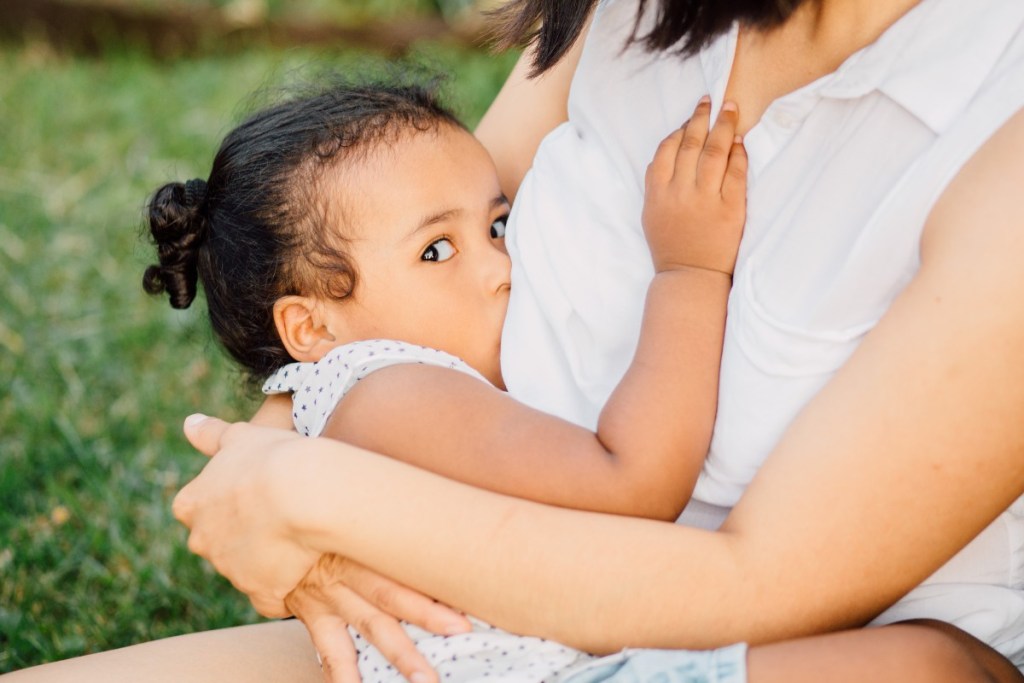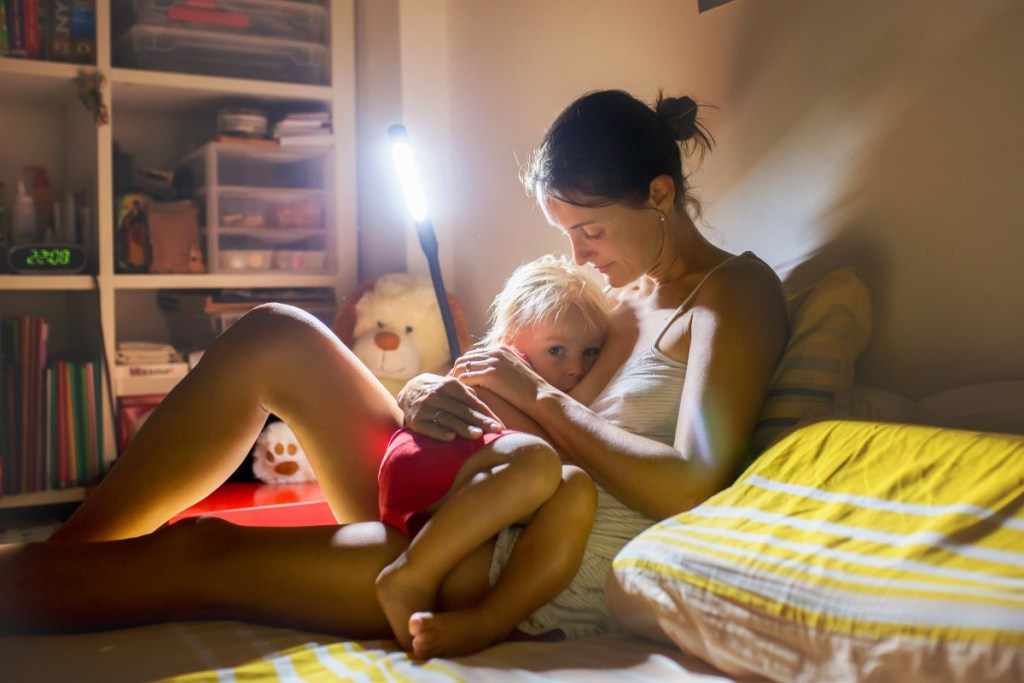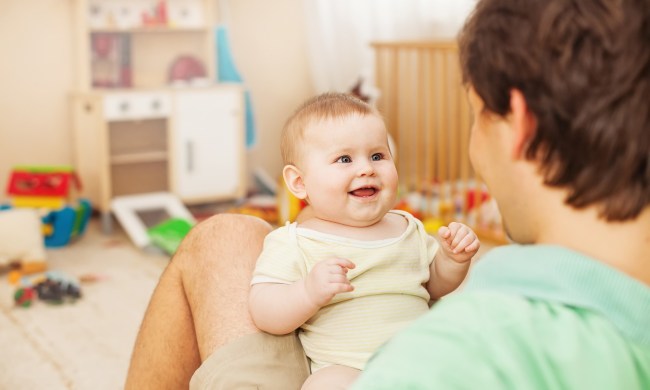Breastfeeding is not for every mom — and extended breastfeeding is a challenge for even the most committed nursing advocates. But if you and your little one are not ready to give up those 1:1 bonding sessions as your baby approaches toddlerhood, you may consider continuing your journey. As with all parenting decisions, it is a choice that should be guided by your own needs and those of your babe — although, fair warning, you will get plenty of opinions on this particular mama matter. There are benefits and drawbacks to take into consideration, but the most important thing to remember: There is no right or wrong answer here.

Benefits of breastfeeding a toddler
If you have made it long enough to be considering nursing a 2-year-old, kudos to you. This is quite an accomplishment. If you’re ready to throw in the towel and reclaim your life and breasts, go for it — no shame in that mom game. But, if you are wistful at the idea of ending this moment in time, know that you don’t have to stop. There are benefits to extended breastfeeding:
Nutrition boost: Your baby can all get the nutrition they need from solids at this point, so guilt shouldn’t drive your decision. Of course, breast milk is chock-full of nutrients your toddler can benefit from regardless of their diet.
Furthermore, just as your milk evolved to meet the nutritional needs of your infant, it continues to adapt for your toddler. To this end, extended breastfeeding can be helpful for toddlers who are finicky about food.
Extra immunity: Toddlers continue to benefit from the immunity-boosting qualities of breast milk, and exposure to antibodies can help protect them from certain illnesses.
Bonding time: Don’t underestimate the emotional continuity that extended breastfeeding brings. Your breast has been your little one’s safe space for months; if you resume nursing, it’ll remain a source of comfort.
Toddlers are energetic creatures, but even the most curious child will seek out the breast when they’re feeling unsettled or unwell. Likewise, you may enjoy the cuddles that come with extended breastfeeding. Nursing gives you both an opportunity to settle down and snuggle up.
Protection for you: As noted by the Mayo Clinic, breastfeeding for 12 or more months can potentially offer you some protection from breast cancer, ovarian cancer, and other diseases.
Downsides of breastfeeding a toddler
Of course, there’s a flip side to the cozy parts of extended breastfeeding. Toddlers can be tiny terrors — and sometimes your breasts will take the brunt of a mini person’s fury. Suddenly thinking twice about nursing your 2-year-old? Here are some other things to consider:
It could limit your time: If you’ve spent the past few months nursing on demand, you may be ready to reclaim your time, go back to work, or squeeze in a hobby for yourself.
It’s not always comfortable: Your toddler may experiment with wacky feeding positions that aren’t exactly natural for you. Go with the flow when your yogi tries nursing upside down, but if it causes pain, gently reprimand and reposition. You can also stop and explain that you’ll resume once they’re feeling calmer.
Toddlers also have teeth. Your nipples may not enjoy the unexpected chomp of a big 2-year-old canine. If biting or grazing becomes habit, explain that it hurts, and that you will have to stop if they continue using their teeth that.
You may be judged: While extended breastfeeding is embraced throughout the world, it’s less common in the U.S. The irony is that women feel pressured to nurse for six months, but when they do it beyond the one-year mark, they suddenly get side-eye shade. This is a personal decision. No one else’s opinion matters. You do you.

Tips for breastfeeding toddlers
If you’ve made up your mind to stay the course, there are a few words of wisdom to keep in mind.
There is no schedule: Your breast will often take second stage to other excitement, and there may be no rhyme or reason to your nursing schedule. Your child could be enthusiastic about nursing one day and indifferent the next. Since they no longer require breast milk, this is nothing to stress over. However, if you like having rhythm to your routine, you may find these sporadic sessions disruptive to your day.
A toddler may be more prone to relaxing into a nursing session during quiet times; try a feeding when they wake up and as they’re winding down in the evening.
When to wean: There’s no right or wrong time to wean. You can let their cues be your guide or establish your own timetable. Start by talking with your toddler. Gradually reduce feeding times and cut out pre-bedtime nursing. Keep the cuddles going strong even when you’re no longer offering the breast. It’ll take time, but eventually you’ll both be ready.
Breastfeeding your 2-year-old or toddler kids is certainly not for the faint of heart. The pros are plentiful, but the cons are too. As with all aspects of parenting, there will be exhausting days ahead when you want to call it quits, and moments that bring you immeasurable joy and gratitude. Be confident in your decision, and try to enjoy this sweet time soaking up all the skin-to-skin love — and then show yourself grace and kindness when you feel ready to stop. This is your breastfeeding journey, after all, and you are in charge. You’ve got this, Mama.


